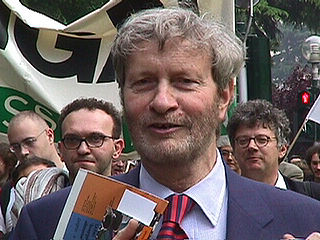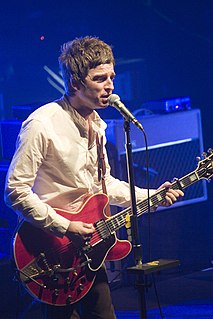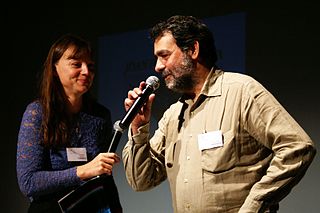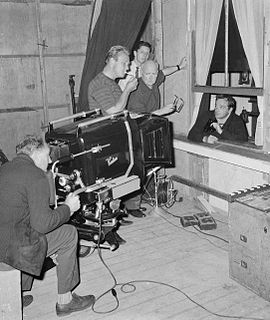A Quote by Joshua Oppenheimer
There's a tradition of reenactment in documentary which is about sort of illustrating what the past might have been like.
Quote Topics
Related Quotes
Tradition is the transmitting of linguistic messages that constitute the horizon within which Dasein is thrown as a historically determined project: and tradition derives its importance from the fact that Being, as a horizon of disclosure in which things appear, can arise only as a trace of past words or as an announcement that has been handed down to us.
God is not good, or wise, or intelligent anyway that we know. So, people like Maimonides in the Jewish tradition, Eboncina in the Muslim tradition, Thomas Aquinas in the Christian tradition, insisted that we couldn't even say that God existed because our concept of existence is far too limited and they would have been horrified by the ease with which we talk about God today.
I have wondered if I might be placed on a watch list of some sort by the government, though. I know that the documentary filmmaker Laura Poitras, who is a friend and who has made documentaries about controversial Middle Eastern terrorists has had trouble at customs when she travels internationally - but nothing like that has happened to me.
I don't think I would have been a good architect. Really, I have thought about this from time to time, and I might have wound up like my father, who never did find that which he could devote his life to. He sort of drifted from job to job. He was a traveling salesman, he was a bookkeeper, he was an office manager, he was here, there, there. And however enthusiastic he was at the beginning, his job would bore him. If I hadn't had the writing, I think I might have replicated what he was doing, which would not have been good.
The Anglo-American tradition is much more linear than the European tradition. If you think about writers like Borges, Calvino, Perec or Marquez, they're not bound in the same sort of way. They don't come out of the classic 19th-century novel, which is where all the problems start. 19th-century novels are fabulous and we should all read them, but we shouldn't write them.
The book [Saving Calvinism] argues in each case that the Reformed tradition is broader and deeper than we might think at first glance - not that there are people on the margins of the tradition saying crazy things we should pay attention to, but rather that there are resources within the "mainstream" so to speak, which give us reason to think that the tradition is nowhere near as doctrinally narrow as the so-called "Five Points of Calvinism" might lead one to believe.
There are very few things in the mind which eat up as much energy as worry. It is one of the most difficult things not to worry about anything. Worry is experienced when things go wrong, but in relation to past happenings it is idle merely to wish that they might have been otherwise. The frozen past is what it is, and no amount of worrying is going to make it other than what it has been. But the limited ego-mind identifies itself with its past, gets entangled with it and keeps alive the pangs of frustrated desires.
It might be crazy to expect a high government official to speak the truth. It might be crazy to believe that government policy will be something more than the handmaiden of the most powerful interests. It might be crazy to argue that we should preserve a tradition that has been part of our tradition for most of our history -- free culture. If this is crazy, then let there be more crazies. Soon.
The urge to break with a tradition is only appropriate when you're dealing with an outdated, troublesome tradition: I never really thought about that because I take the old-fashioned approach of equating tradition with value (which may be a failing). But whatever the case, positive tradition can also provoke opposition if it's too powerful, too overwhelming, too demanding. That would basically be about the human side of wanting to hold your own.
Above all, documentary must reflect the problems and realities of the present. It cannot regret the past; it is dangerous to prophesy the future. It can, and does, draw on the past in its use of existing heritages but it only does so to give point to a modern argument. In no sense is documentary a historical reconstruction and attempts to make it so are destined to failure. Rather it is contemporary fact and event expressed in relation to human associations.






































